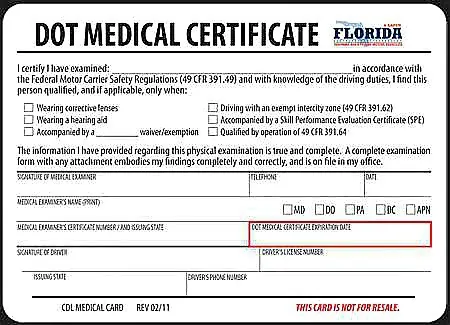In Arizona, driving a commercial vehicle comes with immense responsibility. Therefore, several strict regulations are in place for CDL drivers. Do you know what Arizona CDL disqualifications can prevent you from obtaining and holding your CDL? DUIs, serious traffic violations, out-of-service orders, and railroad violations are major disqualifications that impact your livelihood. Therefore, our post today will dive into great detail about the most common disqualifications and their consequences, providing you with a clear overview of what to avoid. Keep reading to guard your commercial driving career!
What are the Arizona CDL disqualifications?
The Arizona CDL manual divides CDL disqualification into categories with violations and penalties as follows:
DUIs, leaving the scene of an accident, and felony commissions

CDL holders in Arizona face strict penalties for certain serious offenses such as driving under the influence – DUIs, leaving the scene of an accident, or commission of felonies. These violations have long-term disqualification and can be career-devastating. Specifically:
- Minimum 1-year disqualification for:
- Operating a commercial motor vehicle (CMV) under the influence with a blood alcohol concentration (BAC) of 0.04% or higher.
- Driving under the influence of alcohol or drugs.
- Refusal of alcohol or drug testing.
- Driving under the influence of a controlled substance.
- Leaving the scene of a CMV accident.
- Operating a CMV while your CDL is suspended.
- Causing a fatal accident due to negligent driving.
- Committing a felony with a CMV.
- Minimum 3-year disqualification for operating hazardous materials placarded CMV while violating any of the above.
- Lifetime disqualification for second offenses or a felony involving controlled substances.
Severe traffic violations

Severe traffic violations usually refer to driving in a reckless or unsafe manner, which threatens road safety. As a result, CDL holders in Arizona will face heavy penalties if committed. CDL drivers need to observe these violations to avoid losing driving privileges.
Common severe traffic violations include:
- High speed (15 mph or more above the limit).
- Reckless driving that endangers others.
- Improper or erratic lane changes.
- Tailgating (following too closely).
- Traffic offenses committed in a CMV related to fatal accidents.
- Operating a CMV without a valid CDL or CLP.
- Operating a CMV without proper class CDL or endorsements.
- Texting while driving a CMV is in violation of state laws.
- Violating laws restricting hand-held mobile phone use while driving a CMV, resulting in driver distractions.
Repeatedly violating the traffic rules above leads to heavy penalties:
- Two serious violations in 3 years: Face a minimum of 60-day disqualification.
- Three or more major offenses within 3 years: Face a minimum of 120-day disqualification.
Out-of-service order violations
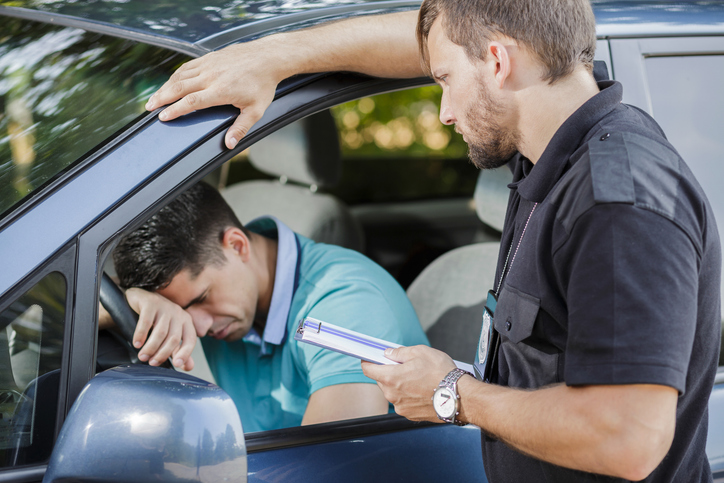
Out-of-service orders are usually given when a CMV is considered unsafe, normally for very serious mechanical defects or failure to comply with Federal regulations. Disregarding an out-of-service order is a great violation that involves many safety risks and tends to undermine the enforcement of safety standards. The penalties in Arizona for such disregard increase to further emphasize strict compliance.
Penalties for violating an out-of-service order:
- First offense: Suspension of at least 180 days.
- Second offense within 10 years: Disqualification for at least 2 years.
- Third offense within 10 years: Disqualification for at least 3 years.
Make sure your vehicle is in complete compliance before hitting the road!
Violations at Railroad-Highway Grade Crossings
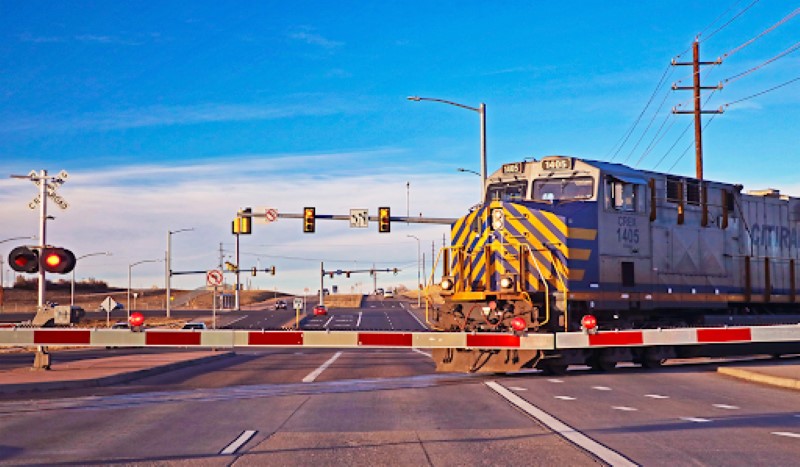
Railroad-highway grade crossing violations are considered severe offenses that may lead to major CDL disqualifications. The violation pertains to failure to adhere to the safety regulations in case of railroad crossings; thereby, letting dangerous accidents or disruption of the traffic process take place. Awareness of the rules of procedure in approaching and crossing the railroad tracks is highly important for CDL holders.
Common railroad-highway crossing offenses include:
- Failure to stop when tracks are not clear.
- Failure to stop and check that the tracks are clear before crossing.
- Failure to proceed with caution and look for an approaching train.
- Failure to ascertain whether the crossing is safe to proceed.
- Failing to stop before crossing: for those drivers who must stop-not stopping before crossing the railroad crossing.
- Inadequate space to clear the crossing: Not having sufficient space to drive completely through the crossing without stopping.
- Failure to obey traffic control devices or enforcement official instructions: Not following the signals or instructions given at the crossing by officials.
- Inadequate undercarriage clearance: Failure to negotiate a crossing because of insufficient vehicle height.
Penalties for non-compliance with railroad regulations:
- First offense: A minimum of 60-day disqualification.
- Second offense within 3 years: A minimum of 120-day disqualification.
- Third offense within 3 years: A minimum of 1-year disqualification.
Hazardous materials endorsement disqualifications
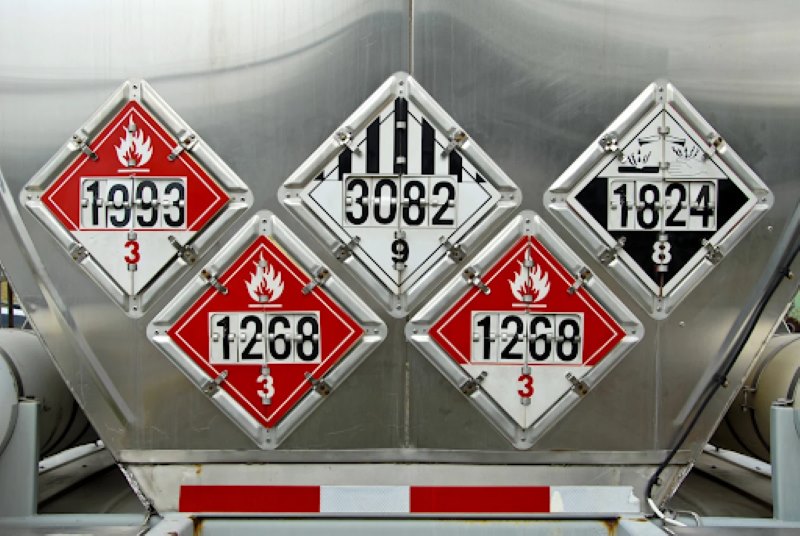
To receive a HazMat endorsement on your CDL, you will be required to undergo a background check and fingerprinting. This ensures only qualified individuals who can meet minimum standards affecting security and safety are granted an endorsement to transport hazardous materials. If you do not pass the background check or become disqualified, you will be required to give up your HazMat endorsement and sometimes even your CDL.
Disqualifications for a HazMat endorsement include the following cases:
- Not a lawful permanent resident in the U.S.
- Renounce U.S. citizenship: Voluntarily give up your citizenship.
- Be a fugitive or under indictment on specified felonies.
- Have a conviction for specified felonies.
- Have been adjudicated as mentally defective or committed to a mental institution.
- Be a security threat to the Transportation Security Administration (TSA): You will be disqualified if the TSA decides that you are a security hazard.
Personal vehicle traffic violations affecting CDL status
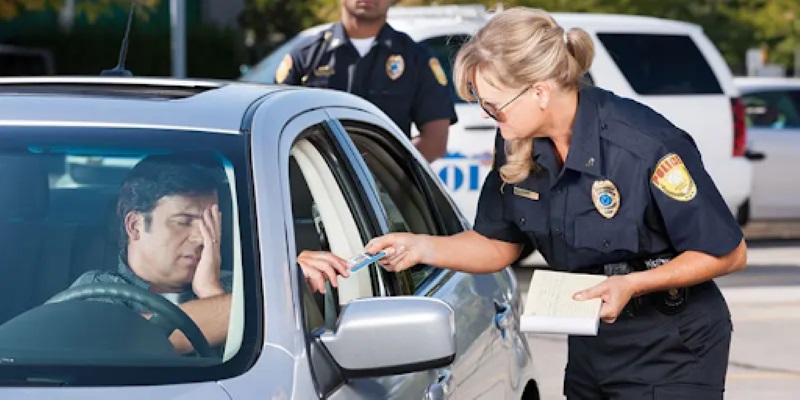
Under the Motor Carrier Safety Improvement Act (MCSIA), certain traffic offenses committed in your personal vehicle will disqualify you from operating a CMV. The rule provides that CDL holders are expected to drive responsibly both on and off the job. If your personal driving privileges are revoked, suspended, or canceled for certain traffic offenses, your privilege to drive a CMV is also affected.
Traffic violations in personal vehicles resulting in CDL disqualifications include:
- License revocation, suspension, or cancellation: You will lose your CDL license if your personal vehicle driver’s license is suspended or revoked for violations of traffic control laws (except for parking offenses).
- Alcohol, controlled substances, or felony violations: You will lose your CDL for at least one year if your personal driving privileges are revoked due to DUIs, or felony convictions.
- Second offense: A second conviction for offenses in your personal vehicle or CMV will result in lifetime disqualification from maintaining a CDL.
- Restricted hardship license: You cannot apply for a “hardship” license to operate a CMV for any period if your personal driving privileges are revoked, canceled, or suspended.
FAQs
1. What felonies disqualify you from getting a CDL Arizona?
Several felony offenses will disqualify you from obtaining a CDL in Arizona, including:
- Felony convictions involving controlled substances such as drug trafficking or possession.
- Felony involving the use of CMV.
- Violent felonies such as assault or manslaughter.
- Terrorist activity felonies, or felonies involving national security threats.
If you are convicted of any felonies above, you risk a lengthy disqualification period or permanent band from Arizona CDL.
2. How many points to suspend a CDL license in Arizona?
If you receive 8 or more points for serious traffic violations within 12 months, your Arizona CDL can be suspended for up to 12 months. Points are assigned for violations such as speeding, careless driving, or committing a major traffic infraction in a CMV, specifically:
| Violations | Points |
| DUI | 8 |
| Severe DUI | 8 |
| Inattentive driving | 8 |
| Aggressive driving | 8 |
| Leaving the scene of an accident or hit-and-run | 6 |
| Failure to stop at a stop sign, traffic light, or right-of-way, which results in death | 6 |
| Serious injury resulting from failing to surrender the right-of-way or stop for a traffic signs | 4 |
| Speeding | 3 |
| Parking in a gore area or driving over | 3 |
| Any additional moving offenses | 2 |
3. How do I get my CDL reinstated in Arizona?
Follow these steps to reinstate your CDL in Arizona:
- Pay the reinstatement fee: This fee will vary depending on your violations and length of disqualification.
- Complete fines and fulfill court requirements: Fines or court orders should be cleared to start your reinstatement.
- Apply for reinstatement: Once satisfying all court requirements, send your application to the Arizona DOT for reinstating your license.
Depending on specific cases, you need to wait for a certain time to reinstate your CDL, especially your disqualification related to alcohol or drug use.
Final thoughts
Understanding Arizona CDL disqualifications is crucial for a successful commercial driving career in the state. From DUIs, felonies, serious traffic violations, and out-of-service order disrespecting, to railroad crossing offenses and hazmat endorsement restrictions, carefully following regulations related to these disqualifications will save you from costly mistakes and stay on the road. Ultimately, staying responsible on the road not only protects your CDL, ensures a lifelong trucking career but also maintains public safety.


